
The Israeli municipality of Jerusalem demolish civilian property in AL-Abbasiya quarter in Silwan village in occupied Jerusalem allegedly because of the lack of construction licenses
Israeli Occupation Forces (IOF) Continue Systematic Attacks against Palestinian Civilians and Property in the Occupied Palestinian Territory (OPT)
IOF delivered to the Palestinian side the body of a Palestinian whom they killed at the Egyptian-Israeli border.
IOF use force to disperse peaceful protest organized by Palestinian civilians in the West Bank.
Dozens of Palestinian civilian suffered from tear gas inhalation.
IOF conducted 22 incursions into Palestinian communities in the West Bank and a limited one into the Gaza Strip.
IOF arrested 6 Palestinians, including two children, in the West Bank.
IOF leveled areas of Palestinian land in the southern Gaza Strip.
Israel has continued to impose a total closure on the OPT and has isolated the Gaza Strip from the outside world.
IOF have continued settlement activities in the West Bank and Israeli settlers have continued to attack Palestinian civilians and property.
IOF stopped establishing water pipelines and confiscated a digger near Qalqilya.
Israeli settlers uprooted 102 trees and seized a 5 dunum[1]-area of land in Hebron.
IOF razed a 14-dunum area of agricultural land in al-Khader village near Bethlehem.
4 Palestinian civilians sustained bruises as they were attacked by Israeli settlers.
Summary
Israeli violations of international law and humanitarian law in the OPT continued during the reporting period (19 – 25 July 2012):
Shooting:
During the reporting period, IOF used force to disperse peaceful demonstrations organized in protest to the construction of the annexation wall and settlement activities in the West Bank. As a result, dozens of demonstrators suffered from tear gas inhalation.
In the Gaza Strip, on 24 July 2012, IOF delivered the body of a Palestinian was killed by IOF at the Egyptian-Israeli border on 15 July 2012.
Incursions:
During the reporting period, IOF conducted at least 22 military incursions into Palestinian communities in the West Bank. During these incursions, IOF arrested 6 Palestinians, including two children.
In the Gaza Strip, IOF conducted a limited incursion into al-Fukhari area near Khan Yunis, during which they leveled areas of Palestinian land which they had already razed.
Restrictions on Movement:
Israel had continued to impose a tightened siege on the OPT and imposed severe restrictions on the movement of Palestinian civilians in the Gaza Strip and the West Bank, including occupied East Jerusalem.
The illegal Israeli-imposed closure of the Gaza Strip, which has steadily tightened since June 2007, has had a disastrous impact on the humanitarian and economic situation in the Gaza Strip. The illegal closure has caused not only a humanitarian crisis but a crisis of human rights and human dignity for the population of the Gaza Strip. Measures declared recently to ease the blockade are vague, purely cosmetic and fail to deal with the root causes of the crisis, which can only be addressed by an immediate and complete lifting of the closure, including lifting the travel ban into and out of the Gaza Strip and the ban on exports. Palestinians in Gaza may no longer suffer from the same shortage of goods, but they will remain economically dependent and unable to care for themselves, and socially, culturally and academically isolated from the rest of the world.
IOF have continued to impose severe restrictions on the movement of Palestinian civilians throughout the West Bank, including occupied East Jerusalem. Thousands of Palestinian civilians from the West Bank and the Gaza Strip continue to be denied access to Jerusalem.
Settlement Activities:
Israel has continued its settlement activities in the OPT in violation of international humanitarian law, and Israeli settlers have continued to attack Palestinian civilians and property.
On 19 July 2012, a number of Israeli settlers from “Bat ‘Ain” settlement, which stands on the lands of Beit Ummar town, north of Hebron, uprooted 35 olive trees, 12 almond trees and 10 grape trees belonging to Hammad ‘Abdul Hamid al-Slaibi.
On 21 July 2012, Israeli settlers living in settlements located to the west and south of Bethlehem razed a 14-dunum area of agricultural land planted with grapes belonging to Ibrahim Suleiman Subaih, to the west of al-Khader village. Subaih stated to PCHR that when he went to his land in ‘Ein al-Qissis area to the west of Khader village, he was surprised that Israeli bulldozers had razed his land and divided it into two parts in order to establish a road leading to a settlement outpost which the settlers plan to establish.
On 23 July 2012, a number of Israeli settlers from “Sousia” settlement to the east of Yatta village, south of Hebron, escorted by IOF, seized a 5-dunum area of land.
On 23 July 2012, IOF moved into Nabi Elias village, east of Qalqilya. They held two workers and forced them to stop extending pipelines to move water from a well to agricultural areas in Nabi Elias village. IOF released the two workers later, but confiscated a digger and a welding machine belonging to them.
On 24 July 2012, a number of Israeli settlers from “Ma’on” and “Sousia” settlements, south of Hebron, uprooted at least 45 olive trees in Shu’ab al-Batam and Wad Ma’in areas.
On 25 July 2012, dozens of Israeli settlers from “Shilo” settlement to the east of Sinjel village, north of Ramallah, attacked a number of Palestinian farmers to prevent them from reaching al-Rafeed area in the east of the village. The settlers violently beat 4 farmers, before the eyes of Israeli soldiers. As a result, the four farmers sustained bruises and injuries throughout the body.
Israeli Violations Documented during the Reporting Period (19 – 25 July 2012)
1- Incursions into Palestinian Areas and Attacks on Palestinian Civilians and Property in the West Bank and the Gaza Strip
Thursday, 19 July 2012
At approximately 01:00, IOF moved into Saffa village, west of Ramallah. They patrolled in the streets for some time and withdrew later. Neither house raids nor arrests were reported.
At approximately 02:00, IOF moved into Beit Kahel village, north of Hebron. They raided and searched a number of houses, but no arrests were reported.
At approximately 03:00, IOF raided and a house belonging to the family of Mahran Mohammed Da’na, 35, near the Ibrahimi Mosque in the old town of Hebron, and arrested him.
Also at approximately 03:00, IOF moved into Jenin. They patrolled in the streets for some time and withdrew later. Neither house raids nor arrests were reported.
At approximately 04:00, IOF raided and searched a house belonging to the family of ‘Othman al-Qawasmi, 24, in the old town of Hebron, and arrested him.
At approximately 05:30, IOF moved into Beit ‘Aur village, southwest of Ramallah. They patrolled in the streets for some time and withdrew later. Neither house raids nor arrests were reported.
At approximately 07:00, IOF moved into Kufor Malek village, northeast of Ramallah. They patrolled in the streets for some time and withdrew later. Neither house raids nor arrests were reported.
At approximately 23:30, IOF moved into Burqa village, northeast of Ramallah. They patrolled in the streets for some time and withdrew later. Neither house raids nor arrests were reported.
Friday, 20 July 2012
At approximately 01:25, IOF moved into ‘Azzoun village, east of Qalqilya. They patrolled in the streets and detained a number of Palestinian civilians claiming that a Molotov cocktail was thrown at the Qalqilya-Nablus road to the north of the village. IOF released those civilians later and withdrew from the village.
At approximately 03:00, IOF moved into Beit Liqya village, southwest of Ramallah. They raided and searched a house belonging to Saleh Sobhi Dar Mousa, who has been detained by IOF, and arrested his son, Islam, 20. They also confiscated two computers and a mobile phone from the house.
At approximately 08:00, IOF moved into ‘Obwin village, northwest of Ramallah. They patrolled in the streets for some time and withdrew later. Neither house raids nor arrests were reported.
At approximately 18:45, IOF moved into ‘Azzoun village, east of Qalqilya. They patrolled in the streets for some time and withdrew later. Neither house raids nor arrests were reported.
Saturday, 21 July 2012
At approximately 01:00, IOF moved into Ya’bad village, southwest of Jenin. They raided and searched a house belonging to the family of Ahmed Taleb Abu Bakr, 19, and arrested him.
At approximately 01:30, IOF moved into Jeet village, northeast of Qalqilya. They patrolled in the streets for some time and withdrew later. Neither house raids nor arrests were reported.
At approximately 10:00, IOF moved into Beit ‘Aur al-Tahta village, southwest of Ramallah. They patrolled in the streets for some time and withdrew later. Neither house raids nor arrests were reported.
At approximately 21:30, IOF moved into Deir al-Ghossoun village, north of Tulkarm. They patrolled in the streets for some time and withdrew later. Neither house raids nor arrests were reported.
At approximately 23:30, IOF moved into al-Mazra’a al-Qibliya village, northwest of Ramallah. They patrolled in the streets for some time and withdrew later. Neither house raids nor arrests were reported.
Monday, 23 July 2012
At approximately 09:30, IOF moved into Tulkarm. They patrolled in the streets for some time and withdrew later. Neither house raids nor arrests were reported.
Tuesday, 24 July 2012
At approximately 01:00, IOF raided and searched a house belonging to the family of Bassel Matariya, 15, in the old town of Hebron and arrested him. IOF claimed that the child has thrown a stone at “Kiryat Arba” settlement, which is nearly kilometers away from his home.
At approximately 02:00, IOF moved into Beit ‘Awa village, west of Hebron. They raided and searched a house belonging to the family of Saqer Mohammed Saqer, 13, and arrested him.
At approximately 20:30, IOF raided an inhabited house belonging to Khaled Badawi Abu ‘Eish in Tal al-Rumaida neighborhood in the center of Hebron. They then raided a house belonging to Nour Thabet Abu ‘Eisha, where his wife and children were present. Israeli soldiers detonated sound bombs inside the house, terrifying the children. They also attacked a photographer of B’Tselem, ‘Imad Abu Shamsiya.
Wednesday, 25 July 2012
At approximately 02:00, IOF moved into Yatta village, south of Hebron. They raided and searched a house belonging to Judge Musleh Abu ‘Azzam, Judge of the Court of First Instance in Hebron. They held the family in one room and searched the house using dogs. They left the house later and no arrests were reported.
At approximately 09:00, IOF moved nearly 300 meters into al-Fukhari area in the southeast of the southern Gaza Strip town of Khan Yunis. They leveled areas of Palestinian land amidst sporadic shooting. No casualties were reported.
IOF Deliver the Corpse of a Palestinian Killed near the Egyptian-Israeli border
At approximately 10:00 on Tuesday, 24 July 2012, IOF delivered to the Palestinian side through Beit Hanoun (Erez) crossing in the northern Gaza Strip the body of Jihad Khamis Hussein Shallouf, 34, from ‘Izbat Bein Hanoun. Shallouf has been wounded on Friday morning, 13 July 2012, by a bullet to the right thigh, when he attempted to entered Israel to search for a job. According to Shallouf’s brother, his brother had served 5 years of imprisonment in Israeli jails and he was released 3 months ago. He had left the Gaza Strip two months ago through tunnels at the Egyptian border, south of Rafah. He stayed in his aunt’s house in Sinai. He made some friends in Sinai, including Jihad Jaber Abu Mughassib, from Deir al-Balah. Shallouf and Abu Mughassib decided to cross the Egyptian-Israeli border. Israeli soldiers positioned at the border fired at them. Both of them were wounded by a bullet for each to the right thigh, and they were arrested. According to Shallouf’s family, they received a phone call on Sunday, 15 July 2012, in which they were informed that he died.
2- Use of Excessive Force against Peaceful Demonstrations Protesting Settlement Activities and the Construction of the Annexation Wall
During the reporting period, IOF used force against peaceful demonstrations organized by Palestinian civilians and international and Israeli human rights defenders in protest to the construction of the Wall and settlement activities in the West Bank. As a result, dozens of demonstrators suffered from tear gas inhalation and others sustained bruises.
Following the Friday Prayer on 20 July 2012, dozens of Palestinian civilians and international and Israeli human rights defenders organized a peaceful demonstration in Bil’ein village, west of Ramallah, in protest to the construction of the annexation wall and settlement activities. They moved towards areas of the annexation wall. They called through megaphones on Israeli settlers in “Mitityahu” settlement to leave Palestinian land. Israeli soldiers stationed in the area fired rubber-coated metal bullets, sound bombs and tear gas canisters at the demonstrators. As a result, a number of demonstrators suffered from tear gas inhalation.
Also following the Friday Prayer on 20 July 2012, dozens of Palestinian civilians and international and Israeli human rights defenders organized a peaceful demonstration in Ne’lin village, west of Ramallah, in protest to the construction of the annexation wall and settlement activities. The demonstrators moved towards areas of the annexation wall. Immediately, Israeli soldiers stationed in the area fired rubber-coated metal bullets, sound bombs and tear gas canisters at the demonstrators. As a result, some demonstrators suffered from tear gas inhalation.
Also following the Friday Prayer on 20 July 2012, dozens of Palestinian civilians and Israeli and international human rights defenders gathered in the center of Nabi Saleh village, northwest of Ramallah, to start the weekly peaceful protest against the construction of the annexation wall and settlement activities. The protesters walked towards the gate erected by IOF near the entrance of the village and leading to Palestinian lands that Israeli settlers from the nearby “Halmish” settlement are trying to seize. Israeli soldiers who had been extensively deployed in the area and near all the entrances of the village since the morning, began to confront the protesters who wanted to walk towards the affected lands. Israeli soldiers fired live and rubber-coated bullets, sound bombs and tear gas canisters at the protesters. As a result, some demonstrators suffered from tear gas inhalation.
At approximately 13:15 also on Friday, 20 July 2012, Palestinian civilians and international human rights defenders organized a peaceful demonstration in Kufor Qaddoum village, northeast of Qalqilya, in protest to the continued closure of the eastern entrance of the village by IOF. They moved towards the entrance. Immediately, Israeli soldiers fired tear gas canisters and sound bombs at them. As a result, some demonstrators suffered from tear gas inhalation.
3- Continued Closure of the OPT
Israel has continued to impose a tightened closure of the OPT and imposed severe restrictions on the movement of Palestinian civilians in the Gaza Strip and the West Bank, including occupied East Jerusalem.
Gaza Strip
Israel has continuously closed all border crossings to the Gaza Strip for nearly 5 years. The illegal Israeli-imposed closure of the Gaza Strip, which has steadily tightened since June 2007, has had a disastrous impact on the humanitarian and economic situation in the Gaza Strip.
IOF have tightened the closure of the Gaza Strip and practically made Karm Abu Salem crossing as the sole commercial crossing of the Gaza Strip although it is not proper for commercial purposes in terms of its distance and operational capacity.
IOF have continued to apply their policy aimed at tightening the strangulation of the commercial movement in the Gaza Strip, including imposing total control over the flow of imports and exports.
The total closure of al-Mentar “Karni” crossing on 02 March 2011 has created a bitter situation that has seriously affected the Gaza Strip. Following this closure, all the economic and commercial establishments in Gaza Commercial Zone were shut off. It should be noted that al-Mentar crossing is the biggest crossing in the Gaza Strip in terms of its operational capacity to absorb the flow of imports and exports. The decision of al-Mentar crossing was the culmination of a series of decisions to totally close Sofa crossing, east of the Gaza Strip, in the beginning of 2009, and Nahal Oz crossing, east of Gaza City, which was dedicated for the delivery of fuel and cooking gas to the Gaza Strip, in the beginning of 2010.
IOF have continued to impose total ban on the delivery of raw materials to the Gaza Strip, except for very limited items and quantities. The limited quantities of raw materials allowed into Gaza do not meet the minimal needs of the civilian population in the Gaza Strip.
The cooking gas crisis which has erupted last November has continued to affect the Gaza Strip. This crisis was created when the Israeli occupation authorities totally closed, on 04 January 2010, Nahal Oz crossing, which used to be dedicated for the delivery of fuel and cooking gas supplies to Gaza, and shifted fuel and cooking gas supplies to Karm Abu Salem crossing which is not technically equipped to receive Gaza’s needs of fuel. Karm Abu Salem crossing, with its maximum absorptive capacity, can receive only 200 tons of cooking gas per day.
Approximately 80% of Gaza civilians have continued to depend on alimentary aid provided by UNRWA and other relief agencies, rates of families who are living below poverty line have continued to be on the rise and approximately 40% of Gaza’s manpower has continued to suffer from permanent unemployment as a result of shutting down the majority of Gaza’s economic establishments.
IOF have continued to impose a total ban on the exportation of Gaza’s products, especially industrial products, leading to undermining any real chances to rerun economic establishments. The situation has been aggravated especially after making Karm Abu Salem crossing as Gaza sole commercial crossing and the repeated closure of this crossing which negatively affected the quantity of Gazan products which were allowed to be exported during last April.
For approximately six consecutive years, IOF have continued to ban the delivery of construction materials to Gaza. During the reporting period, IOF approved the delivery of limited quantities of construction materials for a number of international organizations.
Israel has continued to close Beit Hanoun (Erez) crossing for Palestinian civilians from the Gaza Strip. IOF only allow the movement of limited groups amidst severe restrictions, including long hours of waiting in the majority of cases. IOF have also continued to adopt a policy aimed at reducing the number of Palestinian patients allowed to move via Beit Hanoun crossing to receive medical treatment in hospitals in Israel or in the West Bank and Jerusalem. IOF denied new categories of Gazan patient permission to have access to hospitals via the crossing.
Israel has imposed additional access restrictions on traders, international diplomats, journalists and humanitarian workers seeking to enter the Gaza Strip. On Wednesday evening, 14 March 2012, IOF arrested Ahmed Subhi al-Kahlout, 40, a trader from Gaza City, when he was traveling via Beit Hanoun crossing.
For approximately 60 months, IOF have continued to deny Palestinian prisoners from Gaza detained in Israeli jails their visitation rights without providing any justification to this measure, which violates the rules of the international humanitarian law.
Movement at Border Crossings during the Reporting Period:
Movement at Rafah International Crossing Point
18 – 24 July 2012
|
Day |
Date |
Traveling abroad |
Coming into Gaza |
Returned into Gaza |
|
Wednesday |
18 July 2012 |
736 |
1,434 |
21 |
|
Thursday |
19 July 2012 |
1,148 |
1,455 |
34 |
|
Friday |
20 July 2012 |
— |
— |
— |
|
Saturday |
21 July 2012 |
754 |
721 |
53 |
|
Sunday |
22 July 2012 |
849 |
872 |
53 |
|
Monday |
23 July 2012 |
625 |
180 |
39 |
|
Tuesday |
24 July 2012 |
561 |
1,948 |
1 |
Movement at Karm Abu Salem (Kerem Shalom) Crossing
18 – 24 July 2012
Imports:
|
Date |
Imports |
|||||||||
|
Category |
Amount |
|||||||||
|
Tons |
Number |
Liters |
||||||||
|
17 July 2012 |
Foodstuffs |
964 |
||||||||
|
Agricultural materials |
1,172 |
|||||||||
|
Various goods Cartons of shoes Refrigerators Air conditioners Cows Electricity generators |
1,237
|
784 240 126 3,563 70 |
||||||||
|
Humanitarian aid |
3,934 |
|||||||||
|
Cooking gas |
181.290 |
|||||||||
|
|
Diesel for UNRWA |
151,000 |
||||||||
|
|
Industrial fuel from Qatar |
163,640 |
||||||||
|
18 July 2012 |
Foodstuffs |
573 |
||||||||
|
Agricultural materials |
1,174 |
|||||||||
|
Various goods Cartons of clothes Refrigerators Cows Cartons of shoes Fans Electricity towers Gas ovens Cars |
1,653
|
3,942 204 446 1,460 1,456 100 294 20 |
||||||||
|
Humanitarian aid |
3,488 |
|||||||||
|
Cooking gas |
69.050 |
|||||||||
|
Diesel |
36,604 |
|||||||||
|
Industrial fuel from Qatar |
164,901 |
|||||||||
|
19 July 2012 |
Foodstuffs |
1,042 |
||||||||
|
Agricultural materials |
2,041 |
|||||||||
|
Various goods Cartons of clothes Refrigerators Cows Glass boards Fans Water tanks Cartons of shoes |
757 |
1,860 72 450 520 980 152 1,420 |
||||||||
|
Humanitarian aid |
2,829 |
|||||||||
|
Cooking gas |
66.970 |
|||||||||
|
22 July 2012 |
Foodstuffs |
1,000 |
||||||||
|
Agricultural materials |
1,269 |
|||||||||
|
Various goods Cartons of clothes Refrigerators Cartons of shoes Water tanks Glass boards Fans Cars |
1,488
|
1,350 585 1,234 284 520 1,008 30 |
||||||||
|
Humanitarian aid |
1,981 |
|||||||||
|
Cooking gas |
152.210 |
|||||||||
|
Industrial fuel from Qatar |
177,030 |
|||||||||
|
23 July 2012 |
Foodstuffs |
844 |
||||||||
|
Agricultural materials |
1,388 |
|||||||||
|
Various goods Cartons of clothes Refrigerators Water tanks Cows Cartons of shoes Cake machines Cars |
1,695
|
2,184 152 240 269 1,668 8 30 |
||||||||
|
Humanitarian aid |
1,947 |
|||||||||
|
Cooking gas |
153.030 |
|||||||||
|
|
Industrial fuel from Qatar |
211,180 |
||||||||
Notes:
On Tuesday, 17 July 2012, IOF allowed the entry of 120 tons of cement, 26 tons of construction steel and 1,820 tons of construction aggregates for UNRWA; 42 tons of construction steel for UNDP; and 472 tons of cement for the Palestinian Water Authority. They also allowed the entry of 780 tons of fodders and 195 tons of wheat.
On Wednesday, 18 July2012, IOF allowed the entry of 120 tons of cement and 910 tons of construction aggregates for UNRWA. They also allowed the entry of 780 tons of fodders and 156 tons of wheat.
On Thursday, 19 July 2012, IOF allowed the entry 80 tons of cement and 700 tons of construction aggregates for UNRWA. They also allowed the entry of 1,053 tons of fodders and 117 tons of wheat.
On Sunday, 22 July 2012, IOF allowed the entry of 120 tons of cement and 1,820 tons of construction aggregates for UNRWA. They also allowed the entry of 1,014 tons of fodders.
On Monday, 23 July 2012, IOF allowed the entry of 80 tons of cement and 19 tons of construction steel for UNRWA. They also allowed the entry of 1,131 tons of fodders and 39 tons of wheat.
Movement at Beit Hanoun (Erez) Crossing
18 – 24 July 2012
|
Date |
18 July |
19 July |
20 July |
21 July |
22 July |
23 July |
24 July |
|
Patients |
28 |
24 |
2 |
Nil |
31 |
12 |
21 |
|
Companions |
30 |
19 |
3 |
Nil |
29 |
10 |
24 |
|
Arabs from Israel |
10 |
9 |
9 |
Nil |
7 |
7 |
3 |
|
Diplomats |
1 |
2 |
Nil |
Nil |
Nil |
2 |
1 |
|
International Journalists |
3 |
3 |
Nil |
Nil |
Nil |
Nil |
2 |
|
International Workers |
23 |
60 |
5 |
Nil |
8 |
5 |
11 |
|
Travelers abroad |
Nil |
1 |
Nil |
Nil |
Nil |
Nil |
Nil |
|
Business People |
98 |
77 |
Nil |
Nil |
98 |
70 |
53 |
|
Economic Meetings |
Nil |
Nil |
Nil |
Nil |
Nil |
Nil |
4 |
|
Security Interviews |
2 |
3 |
Nil |
Nil |
3 |
1 |
2 |
|
VIP’s |
1 |
Nil |
Nil |
Nil |
Nil |
1 |
1 |
|
Ambulances to Israel |
Nil |
Nil |
Nil |
Nil |
Nil |
Nil |
Nil |
|
Ambulances from Israel |
Nil |
4 |
Nil |
Nil |
1 |
Nil |
2 |
The West Bank
Israel has imposed a tightened closure on the West Bank. During the reporting period, IOF imposed additional restrictions on the movement of Palestinian civilians.
There are approximately hundreds of permanent roadblocks, and manned and unmanned checkpoints across the West Bank.
When complete, the illegal annexation wall will stretch for 724 kilometers around the West Bank, further isolating the entire population. 350 kilometers of the wall have already been constructed. Approximately 99% of the wall has been constructed inside the West Bank itself, confiscating more Palestinian land.
Many of the main roads that lead to Palestinian communities in the West Bank are closed or fully controlled by IOF.
IOF have continued to restrict access of Palestinian civilians from the West Bank to East Jerusalem, through a strict system of permits and a network of checkpoints.
IOF have completed controlled access to the Jordan Valley through 4 permanent checkpoints established at its entrances. Palestinians living outside the area are not allowed to enter it without permits.
Settlement activities and expansion of settlements impose additional restrictions on the movement of Palestinian civilians.
IOF have continued to restrict access to gunfire areas and natural reserves, which constitute about 26% of the total area of the West Bank.
Israeli military checkpoints restrict the movement of goods throughout the West Bank.
Palestinian civilians continue to be harassed by IOF in Jerusalem, and across the West Bank, including being regularly stopped, searched and even arrested in the streets by IOF.
Israel has imposed a tightened closure on the West Bank. During the reporting period, IOF imposed additional restrictions on the movement of Palestinian civilians:
Ramallah and al-Bireh: IOF have continued to impose severe restrictions on the movement of Palestinian civilians. At approximately 09:30 on Thursday, 19 July 2012, IOF established a checkpoint under Kharabtha al-Misbah Bridge, southwest of Ramallah. At approximately 11:30, IOF established a checkpoint at the entrance of Deir Qiddis village, west of Ramallah. At approximately 20:30, IOF re-established their presence at ‘Attara checkpoint, north of Ramallah. At approximately 09:00 on Friday, 20 July 2012, IOF re-established their presence at ‘Attara checkpoint, north of Ramallah. At approximately 09:30, IOF established a checkpoint at the entrance of Nabi Saleh village, northwest of Ramallah. At approximately 18:30, IOF established a checkpoint at Beit ‘Aur al-Fouqa intersection, southwest of Ramallah. At approximately 08:00 on Saturday, 21 July 2012, IOF established a checkpoint at the entrance of Deir Qiddis village, west of Ramallah. At approximately 08:40, IOF established a checkpoint at al-Taybeh intersection, northeast of Ramallah. At approximately 21:00, IOF re-established their presence at ‘Attara checkpoint, north of Ramallah. At approximately 09:30 on Sunday, 22 July 2012, IOF established a checkpoint under Kharabtha al-Misbah Bridge, southwest of Ramallah. At approximately 18:00, IOF established a checkpoint at Beit ‘Aur al-Fouqa intersection, southwest of Ramallah. At approximately 20:00, IOF re-established their presence at ‘Attara checkpoint, north of Ramallah. At approximately 08:00 on Monday, 23 July 2012, IOF established a checkpoint at the entrance of Ne’lin village, west of Ramallah.
Qalqilya: IOF have continued to impose severe restrictions on the movement of Palestinian civilians. On Thursday, 19 July 2012, IOF established 3 checkpoints around Qalqilya. At approximately 07:20 on Friday, 20 July 2012, IOF established a checkpoint at the entrance of ‘Azzoun village, east of Qalqilya. At approximately 11:00 on Monday, 23 July 2012, IOF established a checkpoint at Jeet intersection, northeast of Qalqilya. At approximately 20:45, IOF established a checkpoint at the northern entrance of ‘Azzoun village, east of Qalqilya.
Jenin: IOF have continued to impose severe restrictions on the movement of Palestinian civilians. At approximately 23:30 on Saturday, 21 July 2012, IOF established a checkpoint on al-Mughayar-al-Mutallah road, southeast of Jenin. At approximately 22:30 on Monday, 23 July 2012, Israeli soldiers positioned at “Mavo Dutan” checkpoint, southwest of Jenin, imposed additional restrictions on the movement of Palestinian civilians.
Tulkarm: IOF have continued to impose severe restrictions on the movement of Palestinian civilians. At approximately 22:30 on Saturday, 21 July 2012, IOF established a checkpioint at Beit Leed intersection, east of Tulkarm. At approximately 22:45 on Sunday, 21 July 2012, IOF established a checkpoint at Deir al-Ghossoun intersection, north of Tulkarm.
Jericho: IOF have continued to impose severe restrictions on the movement of Palestinian civilians. At approximately 10:00 on Thursday, 19 July 2012, IOF established a checkpoint at the southern entrance of Jericho. At approximately 17:00, IOF established a checkpoint at the entrance of Fassayel village, north of Jericho. At approximately 18:30, IOF established a checkpoint at the entrance of al-Nuwai’ema village, north of Jericho. At approximately 21:00, IOF established a checkpoint at the entrance of al-‘Ouja village, north of Jericho. At approximately 10:30 on Saturday, 21 July 2012, IOF established a checkpoint at the entrance of ‘Ein al-Dyouk village, north of Jericho. At approximately 20:00, IOF established a checkpoint at the southern entrance of Jericho. At approximately 11:00 on Sunday, 22 July 2012, IOF established a checkpoint at the entrance of al-Nuwai’ema village, south of Jericho. At approximately 20:00, IOF established a checkpoint at the entrance of al-Jiftlek village, north of Jericho. At approximately 21:30, IOF established a checkpoint at the entrance of al-‘Ouja village, northeast of Jericho. At approximately 08:30 on Monday, 23 July 2012, IOF established a checkpoint at the southern entrance of Jericho. At approximately 18:30, IOF established a checkpoint at the entrance of Fassayel village, northwest of Jericho. At approximately 21:30, IOF established checkpoint on al-Mu’rajat road between Ramallah and Jericho.
4- Settlement Activities and Attacks by Settlers against Palestinian Civilians and Property
Israel has continued its settlement activities in the OPT in violation of international humanitarian law, and Israeli settlers have continued to attack Palestinian civilians and property.
On Thursday morning, 19 July 2012, a number of Israeli settlers from “Bat ‘Ain” settlement, which stands on the lands of Beit Ummar town, north of Hebron, uprooted 35 olive trees, 12 almond trees and 10 grape trees belonging to Hammad ‘Abdul Hamid al-Slaibi. This attack has been the 6th of its kind by Israeli settlers against al-Sulaibi and his land over the past two years.
Israeli settlers living in settlements located to the west and south of Bethlehem razed a 14-dunum area of agricultural land planted with grapes belonging to Ibrahim Suleiman Subaih, to the west of al-Khader village. Subaih stated to PCHR that at approximately 03:00 on Saturday, 21 July 2012, he went to his land in ‘Ein al-Qissis area to the west of Khader village. He was surprised that Israeli bulldozers had razed his land and divided it into two parts in order to establish a road leading to a settlement outpost which the settlers plan to establish.
On Monday morning, 23 July 2012, a number of Israeli settlers from “Sousia” settlement to the east of Yatta village, south of Hebron, escorted by IOF, seized a 5-dunum area of land belonging to Rateb al-Jbour in Sousia village.
At approximately 11:00 on Monday, 23 July 2012, IOF moved into Nabi Elias village, east of Qalqilya. They held Mohammed Rajeh Shubaita, from ‘Azzoun village, and Khaled ‘Abdul Hafiz ‘Ouda, from al-Dab’a village, and forced them to stop extending pipelines to move water from a well to agricultural areas in Nabi Elias village. IOF released the two workers, but confiscated a digger and a welding machine belonging to them.
At approximately 22:30 on Tuesday, 24 July 2012, a number of Israeli settlers from “Ma’on” and “Sousia” settlements, south of Hebron, uprooted at least 45 olive trees belonging to Mousa Saleh Jabarin and Khaled Hussein Jabarin in Shu’ab al-Batam and Wad Ma’in areas.
On Wednesday morning, 25 July 2012, dozens of Israeli settlers from “Shilo” settlement to the east of Sinjel village, north of Ramallah, attacked a number of Palestinian farmers to prevent them from reaching al-Rafeed area in the east of the village. The settlers violently beat 4 farmers, before the eyes of Israeli soldiers. As a result, the four farmers sustained bruises and injuries throughout the body:
1- Subhi Ahmed Fuqaha, 47;
2- Nasser Ahmed Ghifari, 42;
3- Mohammed Muraweh ‘Abdul Haq, 23; and
4- Muraweh Hussein ‘Abdul Haq, 58.
Recommendations to the International Community
1. PCHR calls upon the High Contracting Parties to the Fourth Geneva Convention to fulfill their legal and moral obligations under Article 1 of the Convention to ensure Israel’s respect for the Convention in the Occupied Palestinian Territory. PCHR believes that the conspiracy of silence practiced by the international community has encouraged Israel to act as if it is above the law and encourages Israel continue to violate international human rights and humanitarian law.
2. PCHR calls upon the High Contracting Parties to the Fourth Geneva Convention to convene a conference to take effective steps to ensure Israel’s respect of the Convention in the OPT and to provide immediate protection for Palestinian civilians.
3. PCHR calls upon the High Contracting Parties to the Fourth Geneva Convention to comply with their legal obligations detailed in Article 146 of the Convention to search for and prosecute those responsible for grave breaches, namely war crimes.
4. PCHR calls for the immediate implementation of the Advisory Opinion issued by the International Court of Justice, which considers the construction of the Annexation Wall inside the West Bank illegal.
5. PCHR recommends that international civil society organizations, including human rights organizations, bar associations and NGOs, participate in the process of exposing those accused of grave breaches of international law and urge their governments to bring the perpetrators to justice.
6. PCHR calls upon the European Union to activate Article 2 of the Euro-Israel Association Agreement, which provides that Israel must respect human rights as a precondition for economic cooperation between the EU states and Israel. PCHR further calls upon the EU states to prohibit import of goods produced in illegal Israeli settlements in the OPT.
7. PCHR calls on the international community to recognize the Gaza disengagement plan, which was implemented in September 2005, for what it is – not an end to occupation but a compounding of the occupation and the humanitarian crisis in the Gaza Strip.
8. In recognition of ICRC as the guardian of the Fourth Geneva Convention, PCHR calls upon the ICRC to increase its staff and activities in the OPT, including the facilitation of family visitations to Palestinian prisoners in Israeli jails.
9. PCHR appreciates the efforts of international civil society, including human rights organizations, bar associations, unions and NGOs, and urges them to continue their role in pressuring their governments to secure Israel’s respect for human rights in the OPT and to demand Israel end its attacks on Palestinian civilians.
10. PCHR calls upon the international community to pressure Israel to lift the severe restrictions imposed by the Israeli government and its occupation forces on access for international organizations to the OPT.
11. PCHR reiterates that any political settlement not based on international human rights law and humanitarian law cannot lead to a peaceful and just solution of the Palestinian question. Rather, such an arrangement can only lead to further suffering and instability in the region. Any peace process or agreement must be based on respect for international law, including international human rights and humanitarian law.
Public Document
For further information please visit our website (www.pchrgaza.org) or contact PCHR’s office in Gaza City, Gaza Strip by email ( pchr@pchrgaza.org ) or telephone (+972 (0)8 282 4776 – 282 5893).

 July 27, 2012
July 27, 2012 





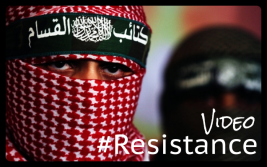

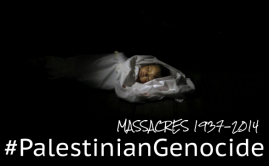





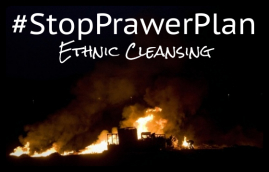

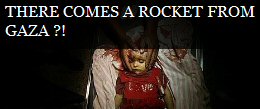



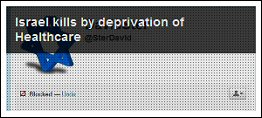
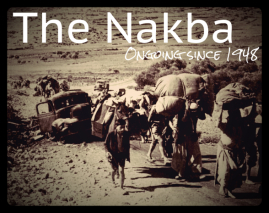



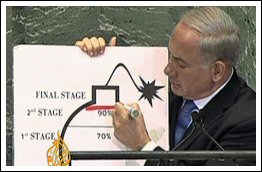
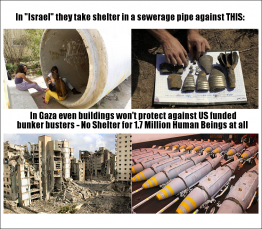





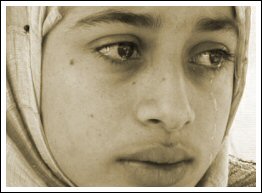
Comments are closed.